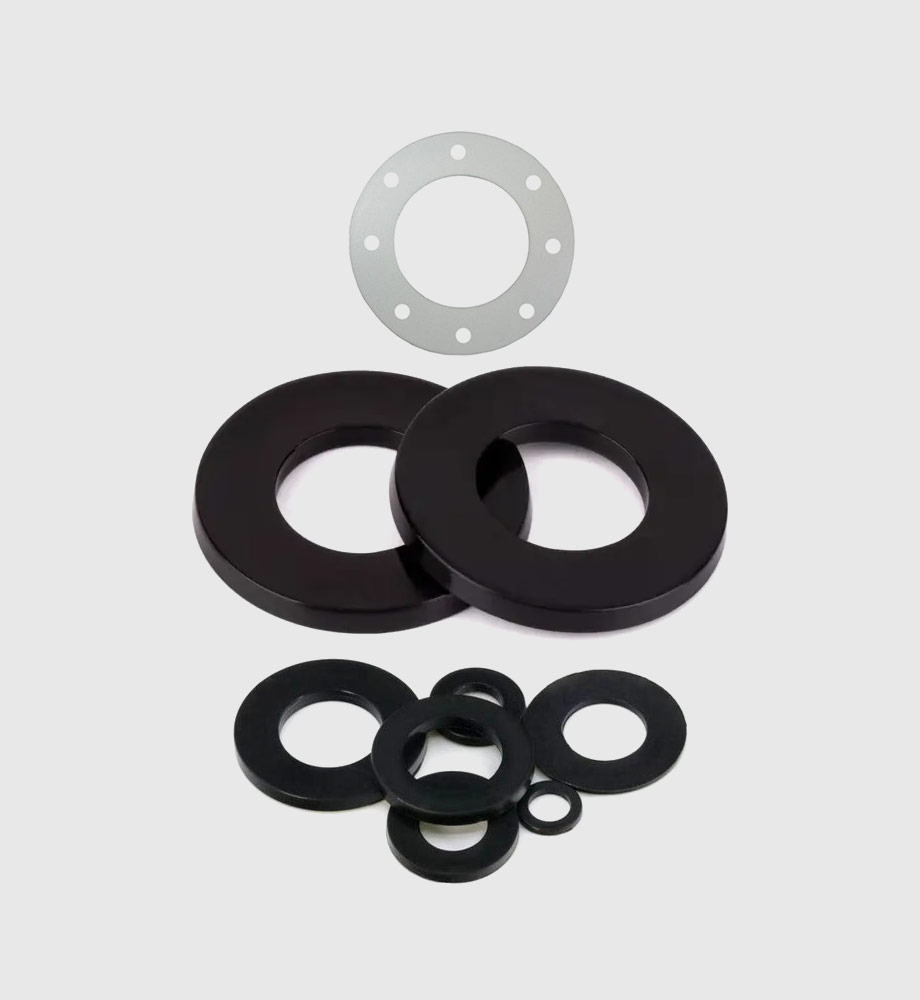Key Features
- Chemical Inertness (PP): Polypropylene resists acids, alkalis, and organic solvents.
- Mechanical Strength (Nylon): Nylon 6/6 gaskets can handle significant compression forces and temperatures up to ~150°C.
- Dimensional Stability: Both materials do not significantly swell in fluids (PP does not absorb water; nylon minimal absorption).
- Custom Shapes: Can be die-cut or molded to any gasket shape (flat rings, custom outlines).
Benefits
- Longevity: Withstand harsh chemicals and pressures with minimal degradation.
- Non-Marring: Stiffer than rubber, useful on softer flanges (like plastic pipe).
- No Stickiness: PP gaskets do not adhere to metal flanges, easing removal.
Applications
- Chemical Plant Flanges: Sealing PVC or PP pipe joints, pump housings and filter presses.
- Water Treatment: Chemical feed pumps and meter seals where acidity is high.
- Automotive: Nylon sealing washers in engine assemblies where heat is present.
- Sanitary Filters: Backwash valves and housing seals in pharmaceutical filters.
Technical Specifications
- Material: Polypropylene homopolymer or copolymer, Nylon 6/6 or 6/12.
- Temperature Range: PP ~0–100°C; Nylon ~–30°C to +120°C (dry).
- Standards: Custom (often meet FDA/USP for food grade versions).
Unique Selling Points (USPs)
- High Purity: PP gaskets are inert and non-toxic, suitable for ultrapure fluid systems.
- Rigid Seal: Nylon seals maintain dimensional stability under load and do not creep like elastomers.

